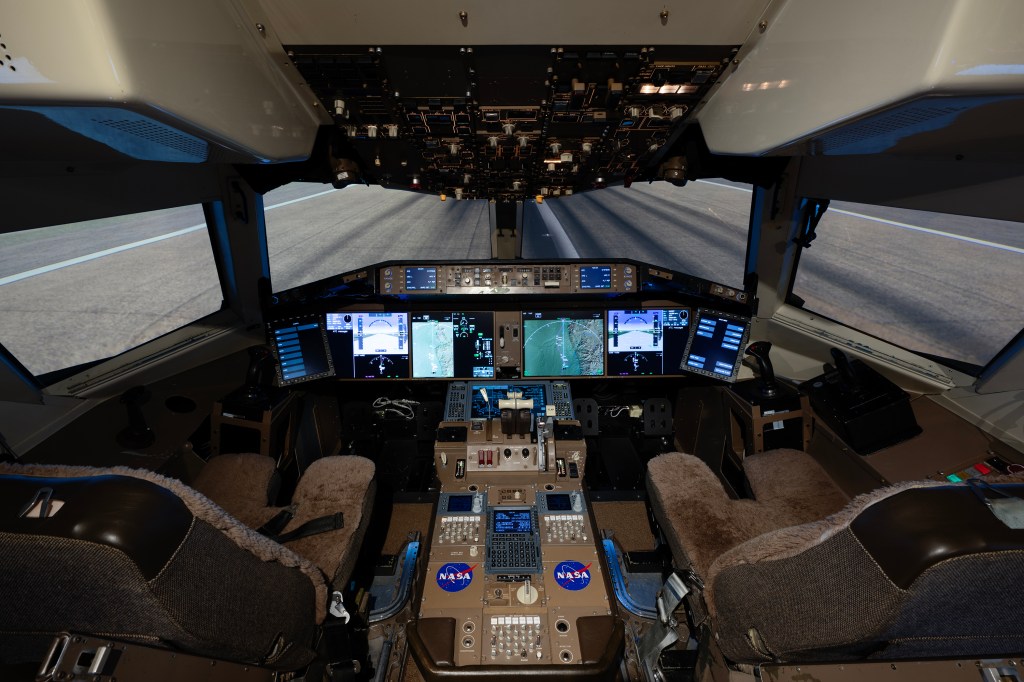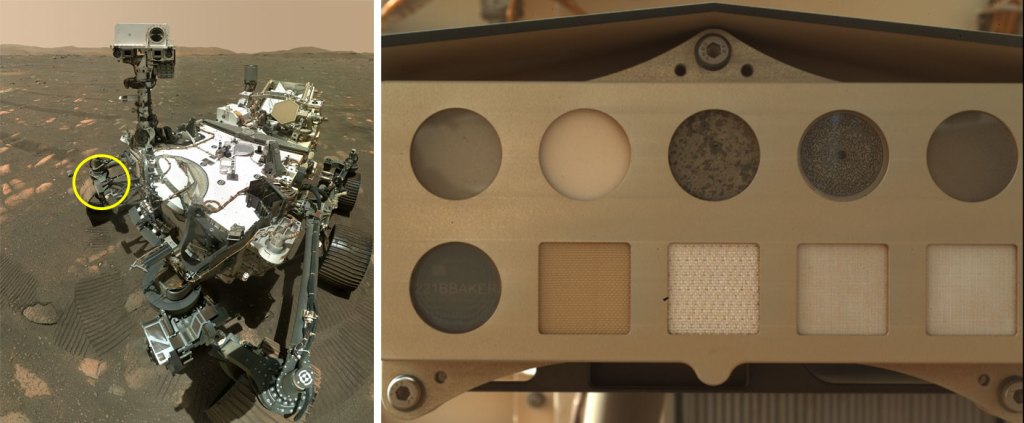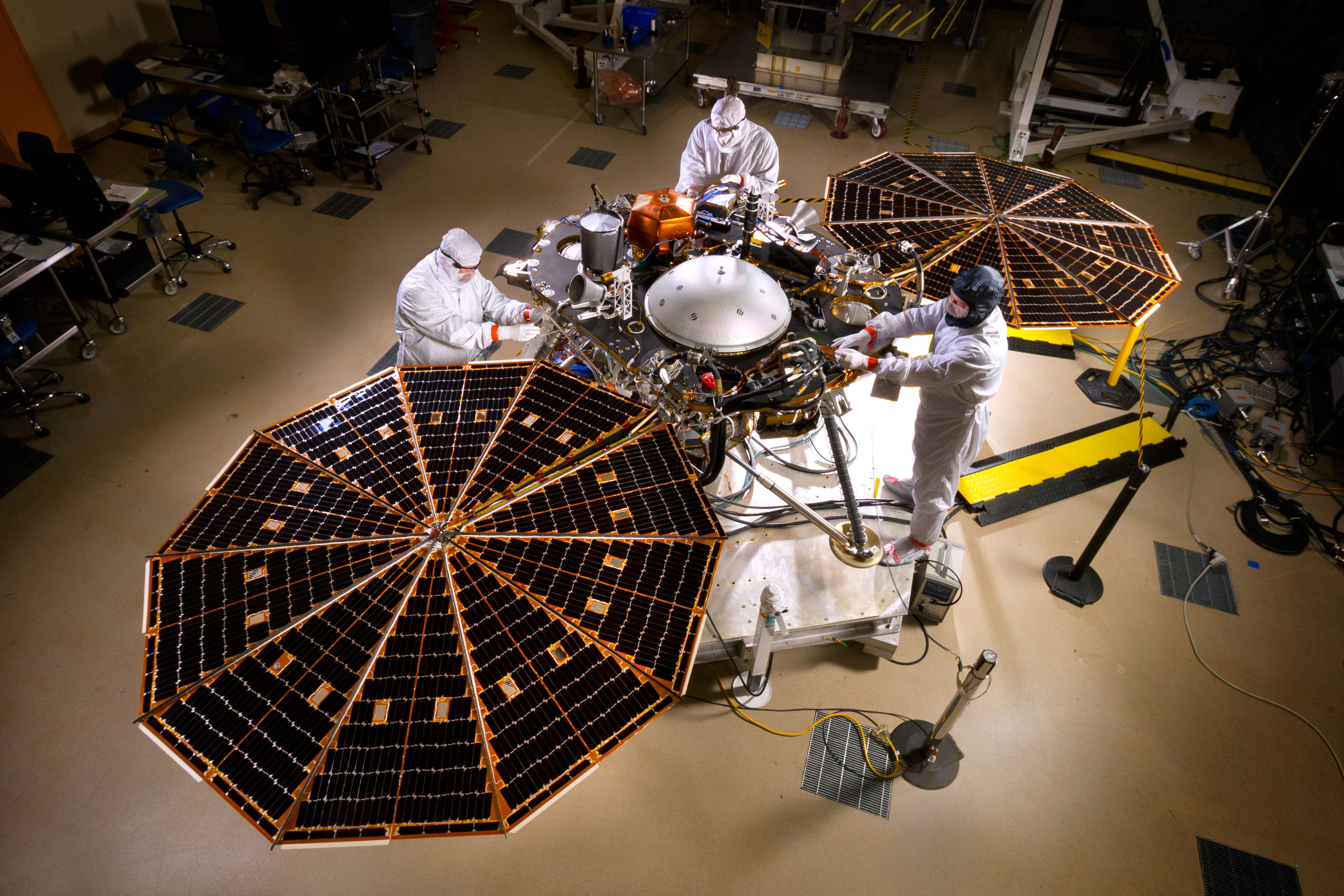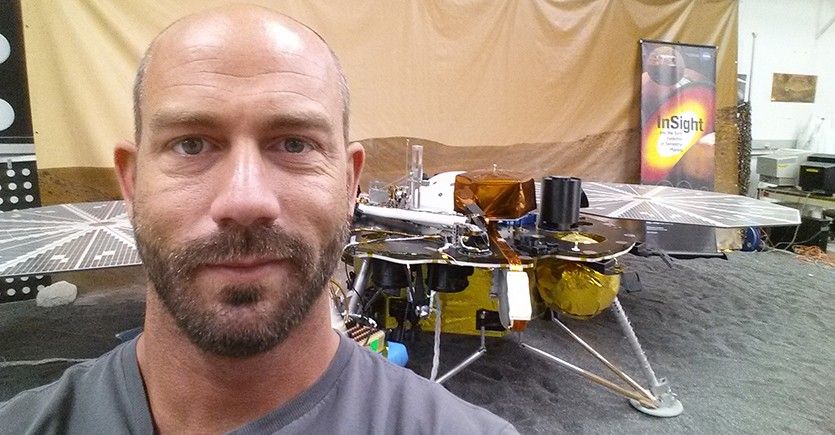
Troy Hudson
Instrument System Engineer - Jet Propulsion Laboratory
Contents
- Education
- Where are you from?
- Describe the first time you made a personal communication with outer space.
- How did you end up working in the space program?
- Who inspired you?
- What is an Instrument System Engineer?
- Tell us about a favorite moment so far in your career.
- What advice would you give someone who wants to take the some career path as you?
- What do you do for fun?
- If you were talking to a student interested in science and math or engineering, what advice would you give them?
- InSight Homepage
- Where are they from?
Education
Kingwood High School, Kingwood, TX
Massachusetts Institute of Technology (MIT)
Bachelor’s, Materials Science and Engineering; Earth, Atmospheric and Planetary Sciences
California Institute of Technology (Caltech)
Doctorate, Geological and Planetary Sciences
Where are you from?
I was born and raised on the northeast side of Houston, Texas.
Describe the first time you made a personal communication with outer space.
In the early 1980s, when I was around 3-4 years old, there were three concurrent influences that I believe kindled my love of space.
- The Voyager spacecrafts, on their Grand Tour, had recently flown by Saturn, providing stunning images of a world whose beauty and complexity had previously only been hinted at.
- The Space Shuttle program was literally taking off, and human exploration of space was big in the news, especially for a Houstonian.
- My mother was a huge fan of Carl Sagan, and his Cosmos series was debuting on PBS; bringing the entire universe within the grasp of a worldwide audience
My parents encouraged my interest, providing workbooks from teacher supply stores, some public outreach materials from Johnson Space Center, and a willingness to feed my voracious appetite for reading. My fascination with rocks and geology also emerged around this time, though it was a bit starved for stimulation in the flatlands of east Texas.
While being gay has never impacted my opportunities for employment, my ability to do my job, or my relationship with my colleagues, it is an important part of who I am. I have to actively work against its invisibility.- Troy Hudson
How did you end up working in the space program?
My love of space, rocks, math, and things scientific only grew throughout my school years. My interest, however, shifted following the Challenger Disaster (I was in second grade at the time, and watched it live on TV). I continued to indulge scientific curiosity, but branched out into various different fields (oceanography and botany among the most prominent). That was until high school, when I attended the US Space Academy (i.e., Space Camp for high schoolers) and rediscovered that space was my true passion (I ended up going back to the Academy twice more before graduating high school!).
I pursued my interest in Earth and Planetary sciences while an undergrad at MIT, alongside what at the time seemed a more “practical” career-supporting study of Materials Science and Engineering. But by the time I graduated in 2000, I had discovered that I *could* have a career that combined my loves of space, rocks, and engineering into one. Following an internship at NASA Ames, I spent 7 years at CalTech earning my Ph.D. in Geology and Planetary Science, with a great deal of my thesis research spent in experimental projects (I loved being in the lab and getting my hands dirty). A colleague working at JPL on the Phoenix mission asked me to come and work as an instrument engineer on a piece of Phoenix hardware (the Thermal and Electrical Conductivity Probe or TECP) when my Ph.D. was complete. I had chosen CalTech for grad school precisely for its affiliation with JPL and was thrilled to land a true ‘dream job’ from my childhood: Designing, building, testing, and flying hardware into space to do geology on other planets, and then doing science with the results! Perfect!
Who inspired you?
My mother was an excellent teacher and her most important lesson to me was learning how to learn. She gave me the tools to ask my own questions and find my own answers. Carl Sagan was a big influence, first through his Cosmos series, and then through his writings. He and my favorite science fiction author, Arthur C. Clarke, are able to take complex and subtle ideas and make them accessible to anyone without robbing them of their beauty and elegance. Like them, I strive to convey both the information and the excitement of my work, regardless of my audience. And my best friend in high school, Meredith Patterson, showed me (by her example) that even though I was passionate about science, math, and engineering, I didn’t have to fit into the standard mold for the ‘nerd’ or ‘bookworm.’ Though it pre-dated the show by decades, I learned from her that my personality needn’t be limited to the character types in the cast of “The Big Bang Theory” (Nonetheless, I’m a fan!).
What is an Instrument System Engineer?
Systems Engineering is what I call a ‘big picture’ discipline. Spacecraft and their subsystems are very complicated and are subject to large variety of constraints, environments, and interfaces. It’s the job of a systems engineer to be concerned with how their piece (instrument or other subsystem) interacts with itself and all the external influences it is subjected to. We’re responsible for ensuring that our piece plays nice with the spacecraft and the project: all the parts fit together, all the requirements have been met, all the capabilities have been demonstrated, and all of the documentation proving those things is in place. In one sense it’s about making sure nothing falls through the cracks. But a better description would be that we’re the engineers that make sure there are no cracks to fall through!
Tell us about a favorite moment so far in your career.
Prior to working on the InSight mission, I was the principal investigator for a high-altitude balloon project called ASTRA. ASTRA’s aim was to demonstrate the function of some prototype Mars surface instruments in an environment (Earth’s stratosphere) that’s quite similar to Mars in several ways. ASTRA was part of a program at JPL designed to give early-career employees a chance to work in the style of a space-flight project. We learned the way JPL does business: all the reviews, all the mission assurance checks, and all the processes and practices that make JPL so successful. It was a VERY steep learning curve, and we spent over two years preparing for a 4 hour flight. There was a moment at the launch site when the gondola slipped off the end of the crane and began to lift silently into the clear morning sky over New Mexico – I was filled with a great sense of peace and satisfaction of a job well done. (Quite a different moment from the drama of a rocket launch or descent through the martian atmosphere!)
What advice would you give someone who wants to take the some career path as you?
A background in both science and engineering is invaluable as a systems engineer: you need to be able to speak the language of both camps, training as both, and doing whatever you can to ‘straddle the fence’. Learn to understand the desires of science (and how it can sometimes be fuzzy) and the limitations of engineering (and how it doesn’t permit any fuzziness) and how to find a harmony between the two.
In recent years, great strides have been made in gay rights and in the visibility of LGBT people. From Barney Frank to Michael Sam to Ellen DeGeneres—there are numerous examples for LGBT people to look up to. But I think most people outside the field would be hard pressed to name a living scientist or engineer … much less one who identifies as gay. While being gay has never impacted my opportunities for employment, my ability to do my job, or my relationship with my colleagues, it is an important part of who I am. I have to actively work against its invisibility. I want my colleagues to know—perhaps one of them has a family member who is struggling to come to terms with their sexuality. I want to be available as a resource and as a friend. I also want the public to know – perhaps an LGBT youth aspiring to a career in science or engineering might have me to hold up as an example.
What do you do for fun?
Body-building is a favorite past-time: it’s a great stress reliever and a hobby that I can take with me when I travel for work or for pleasure. It’s also a great expression of responsibility and ownership: What I’ve accomplished is due entirely to my dedication and choices, and it belongs to no one but me.
When time permits, my partner and I love traveling, dancing, and spending time with friends old and new. I enjoy spinning poi (a type of dancing with light derived from Polynesian fire dancing), I inherited my mother’s green thumb so have many houseplants to tend, and I like camping (anything that gets me close to mountains, desert, and rocks). And I enjoy doing anything (reading, watching documentaries, going to museums) that lets me learn.
If you were talking to a student interested in science and math or engineering, what advice would you give them?
There are so many great resources available today: you can read books, watch you-tube videos, follow science new stories and forums. But don’t forget to try out experiments for yourself, take things apart and see how they work, and ask critical questions. There’s a good deal of mis-information floating around the world, some of it packaged very enticingly. Don’t be afraid to say, “I don’t think that’s right,” out loud—you might start a lively discussion! Oh, and familiarize yourself with the idea of Cognitive Biases. Remind yourself occasionally that for all its powers of reason, the human mind has some odd quirks that can skew your perceptions.
InSight Homepage
InSight, short for Interior Exploration using Seismic Investigations, Geodesy and Heat Transport, is a Mars lander designed to give the Red Planet its first thorough checkup since it formed 4.5 billion years ago.
Where are they from?
Planetary science is a global profession.

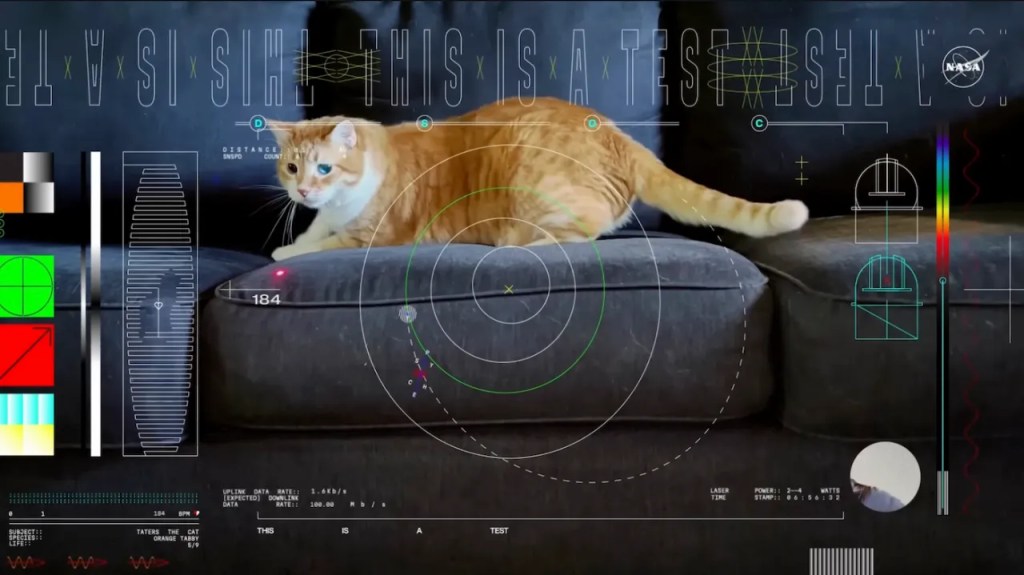
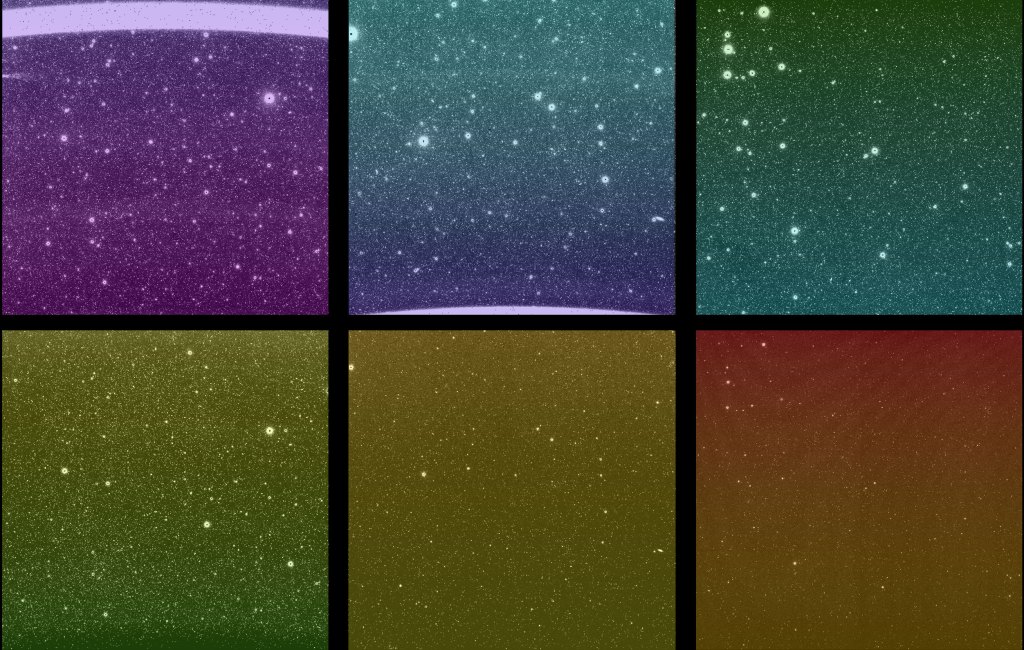
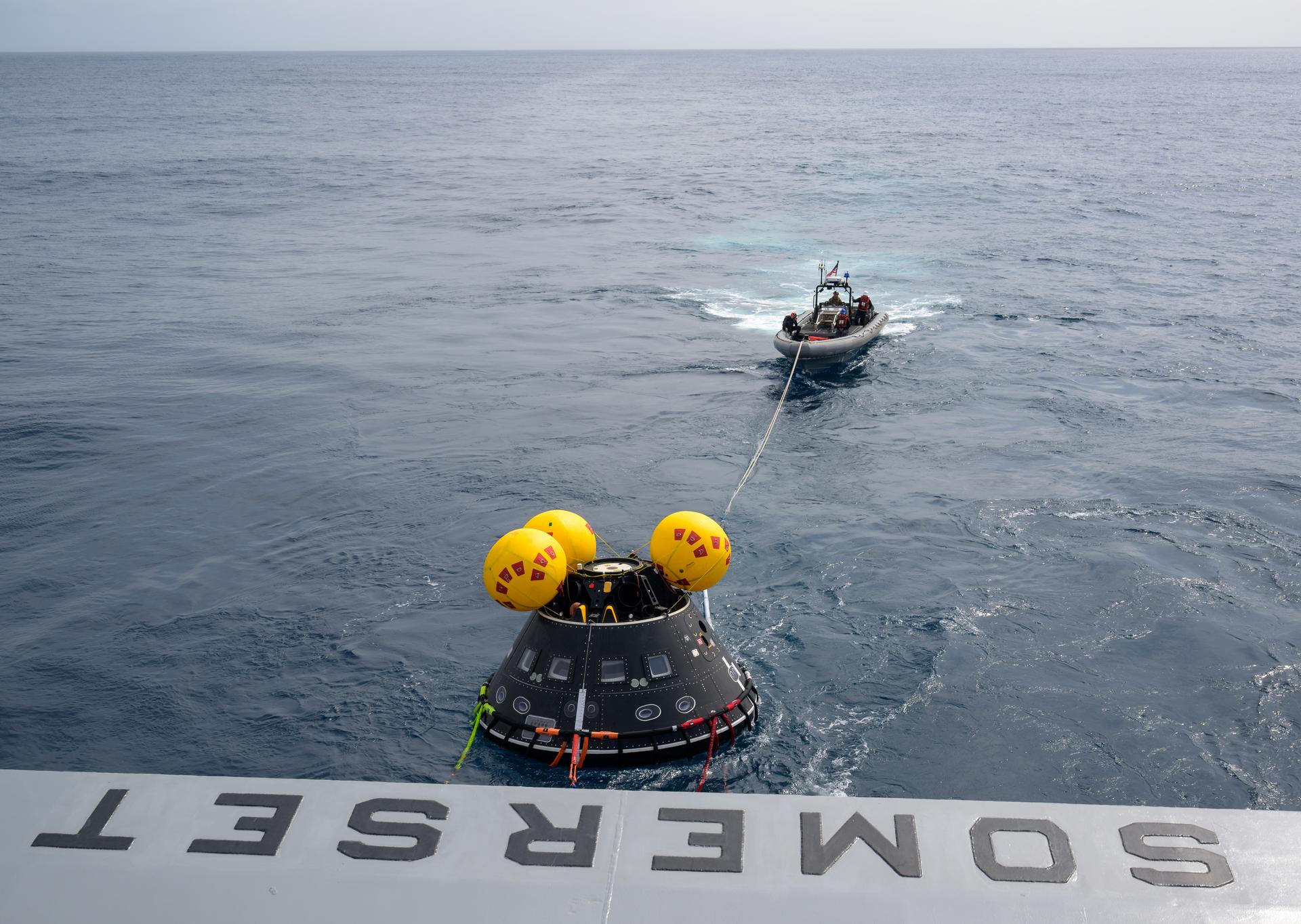
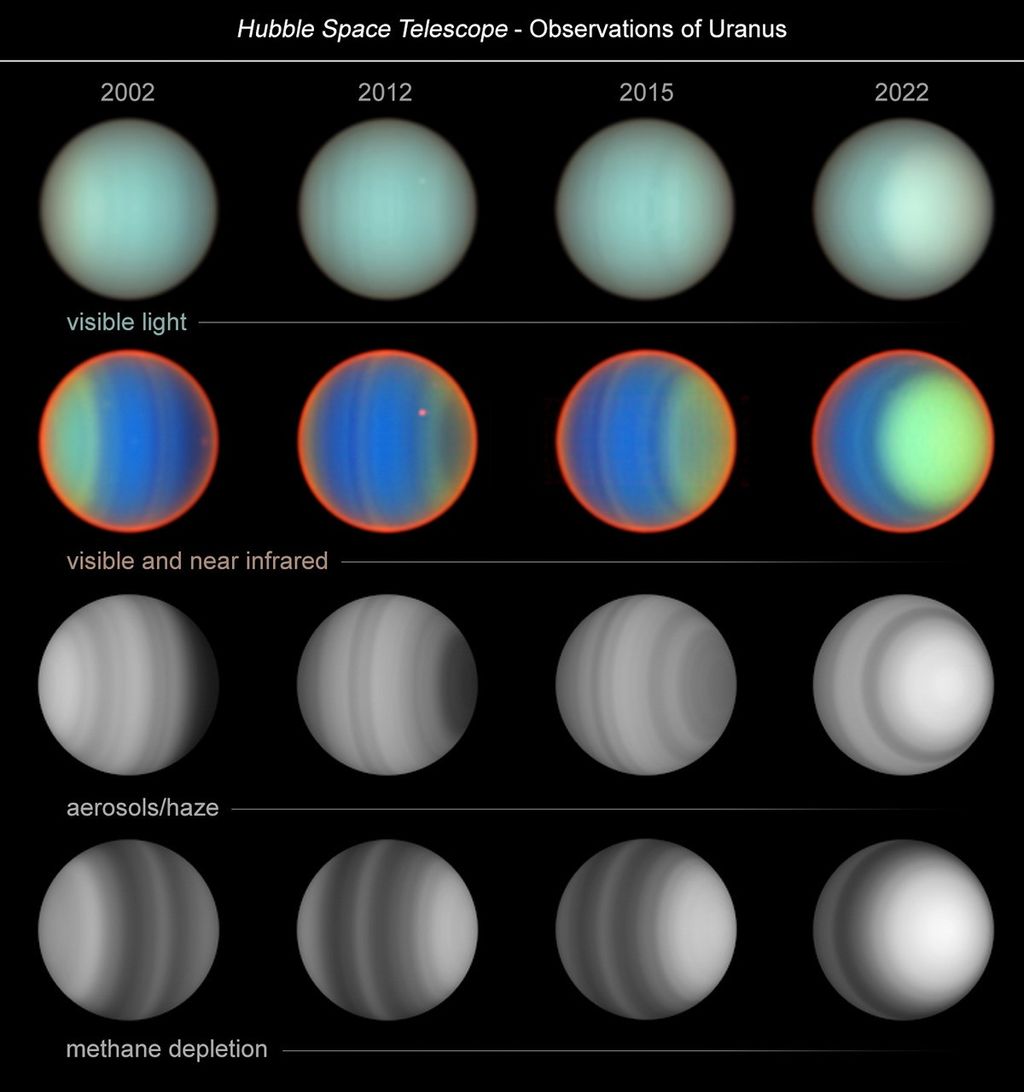
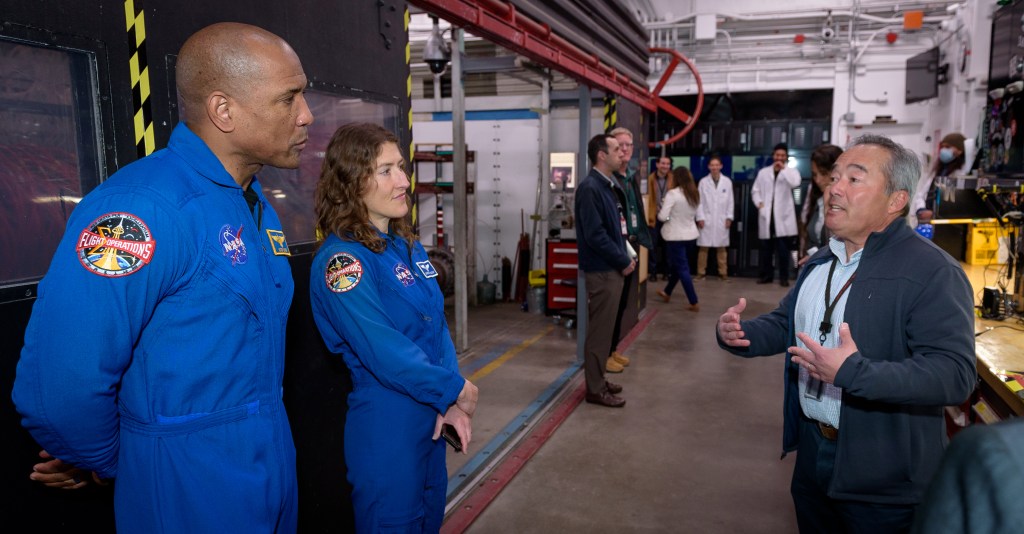
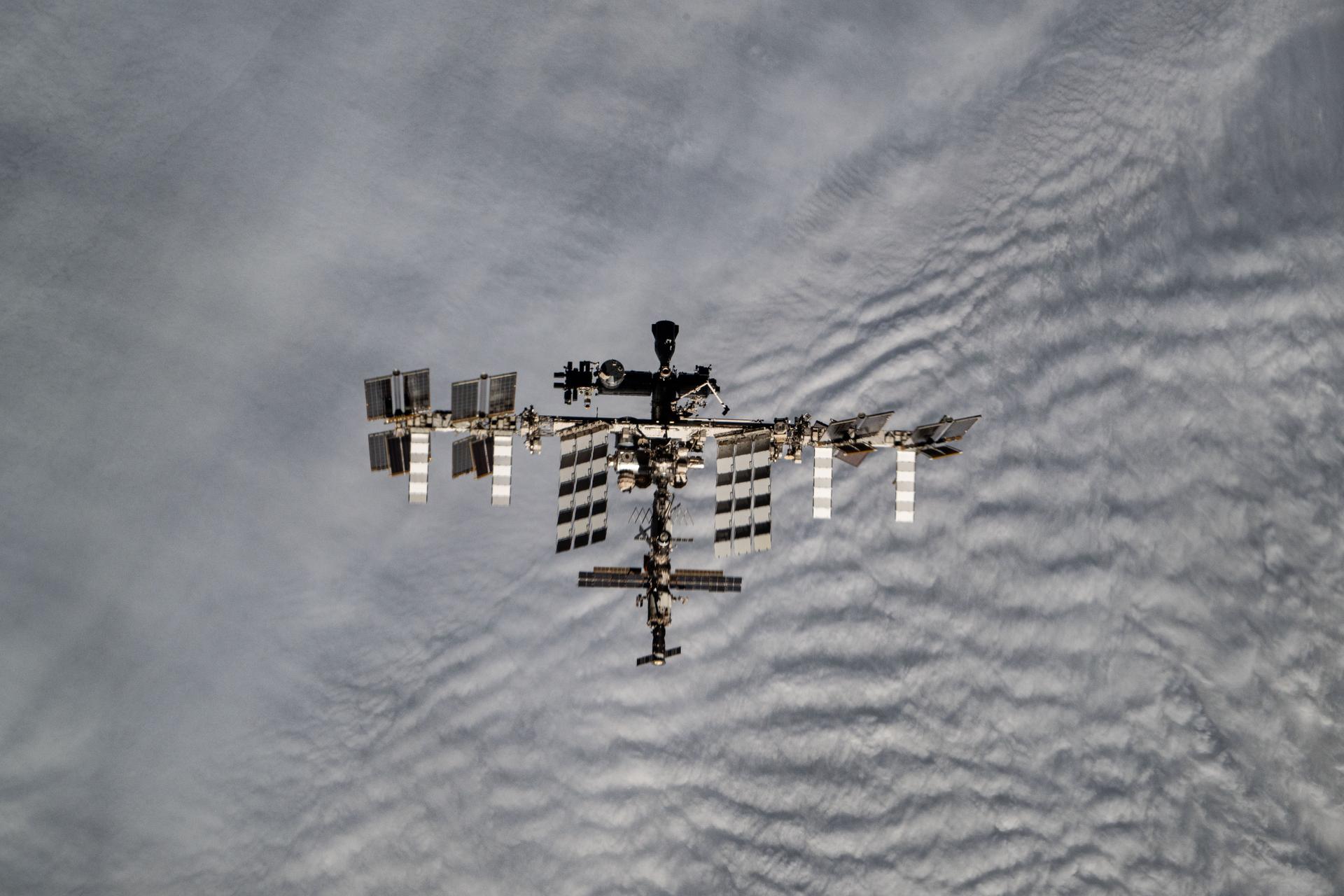


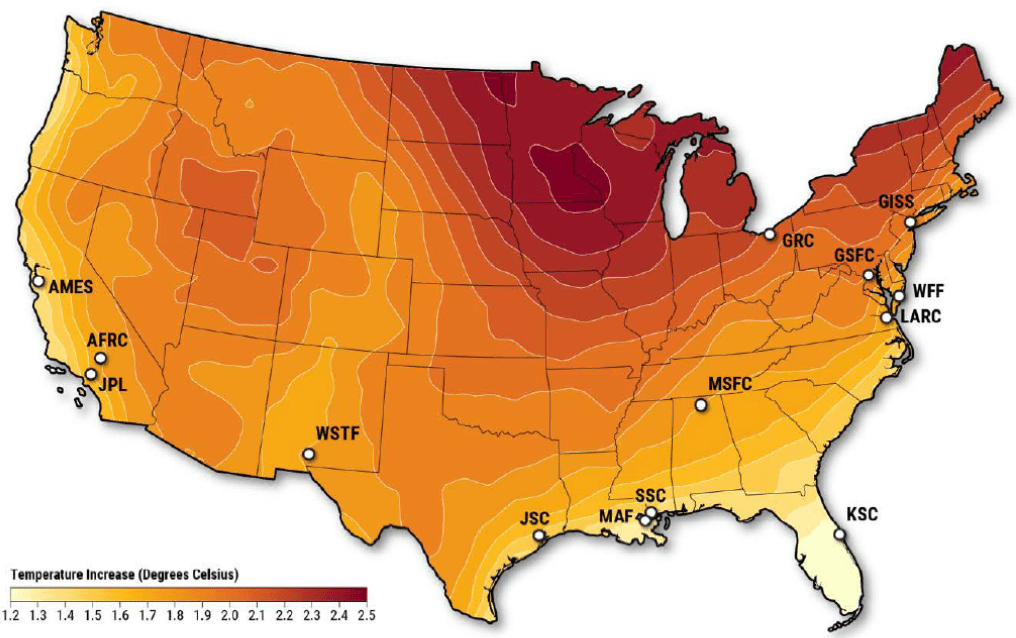
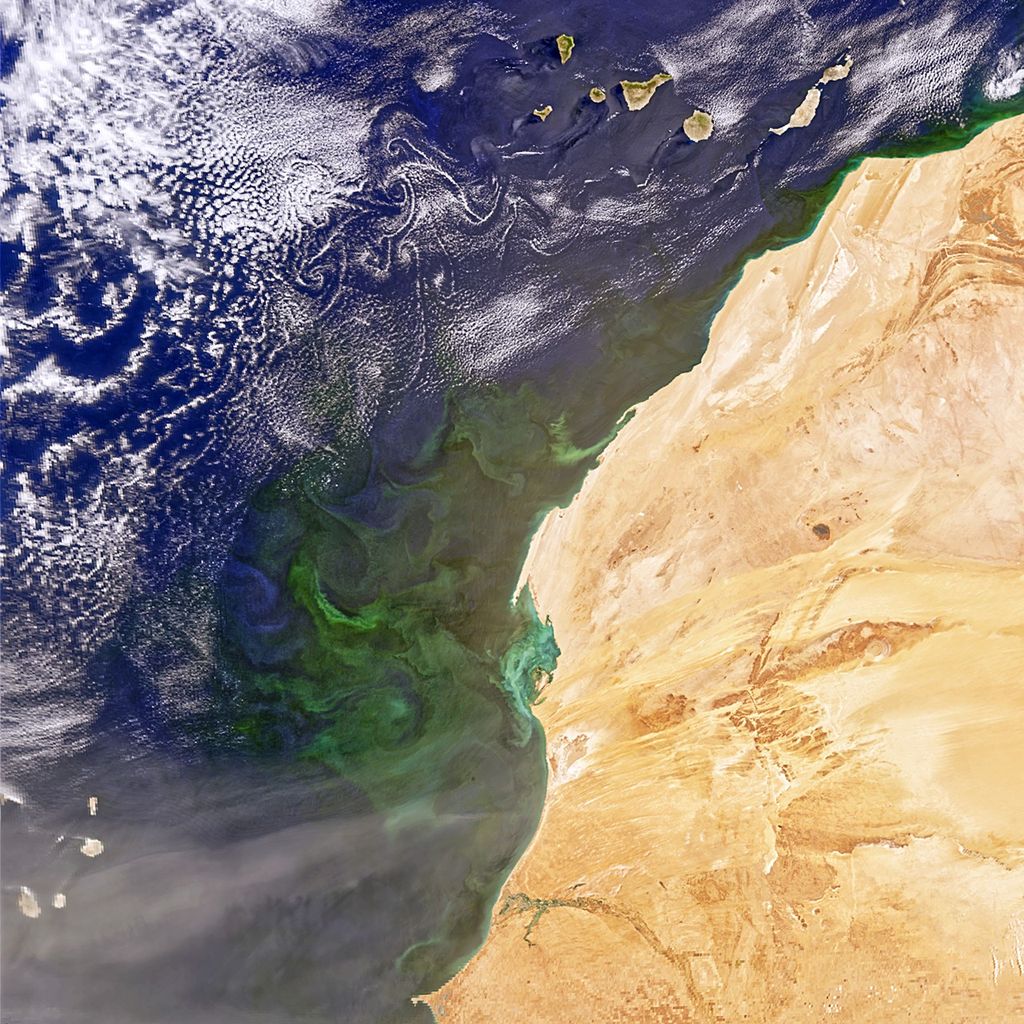
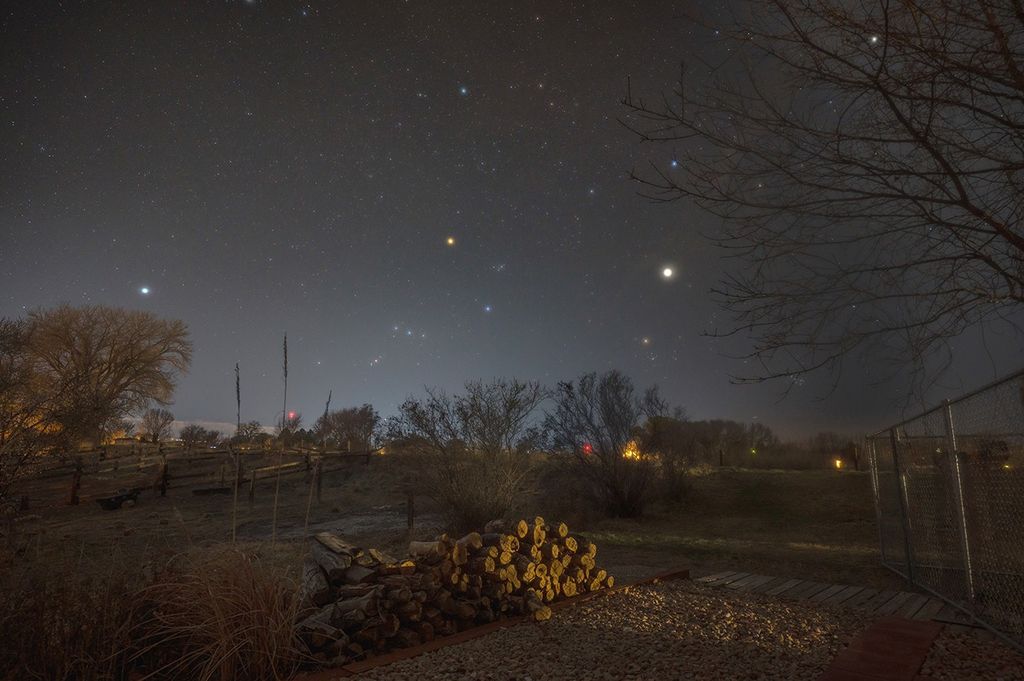

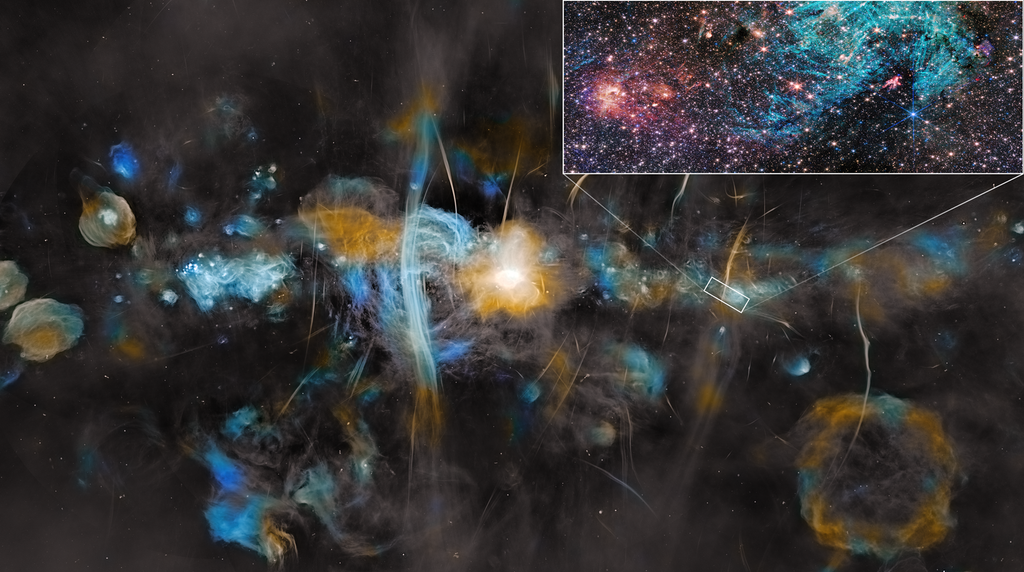

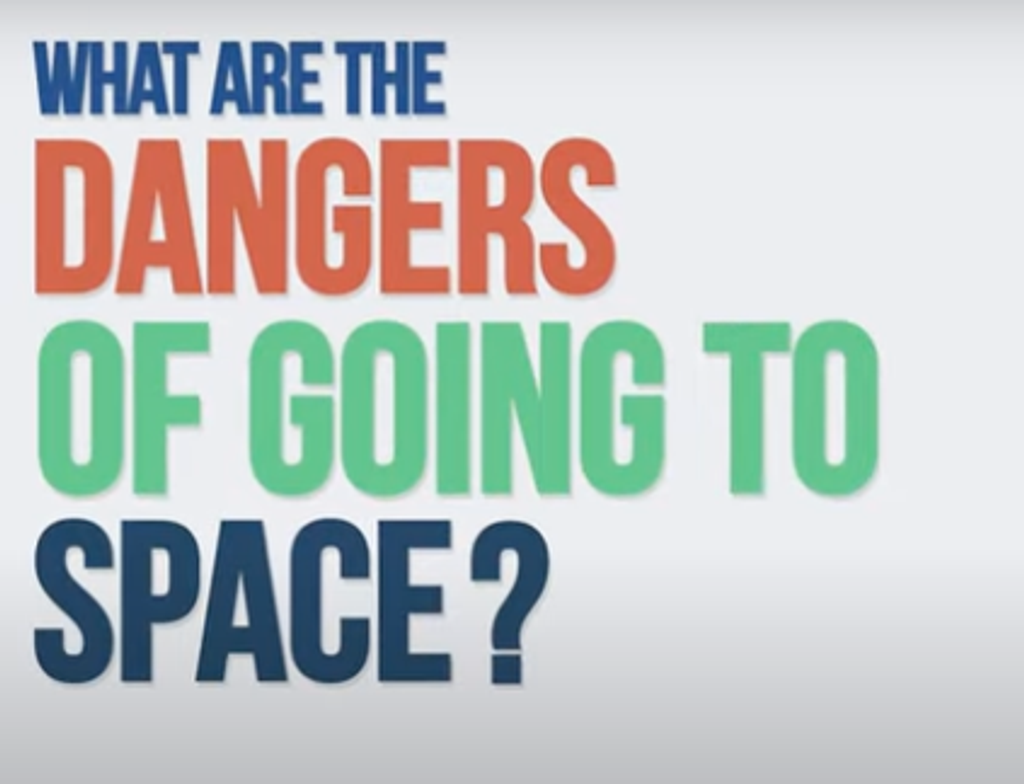
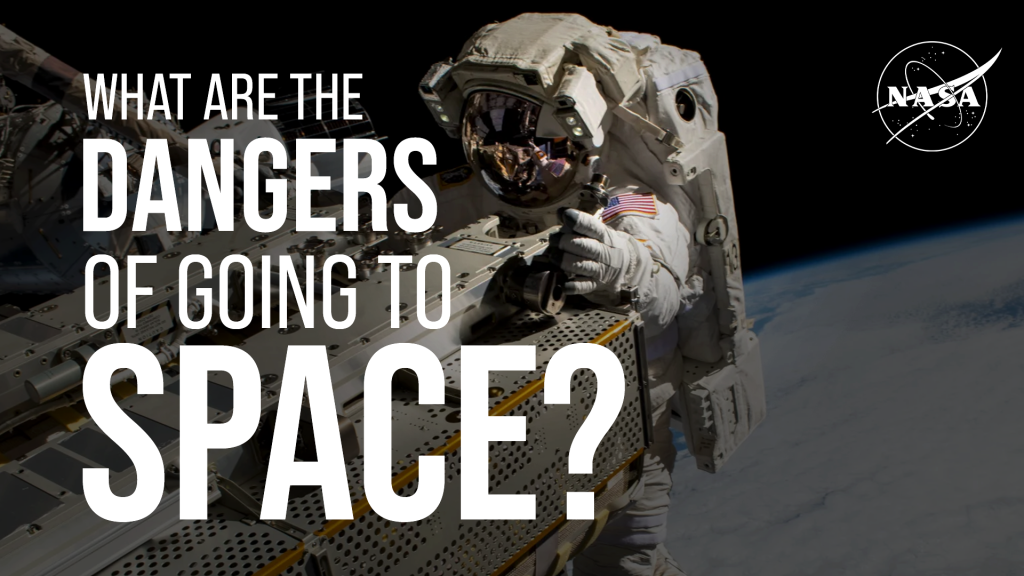
/quantum_physics_bose_einstein_condensate.jpg?w=1024)


